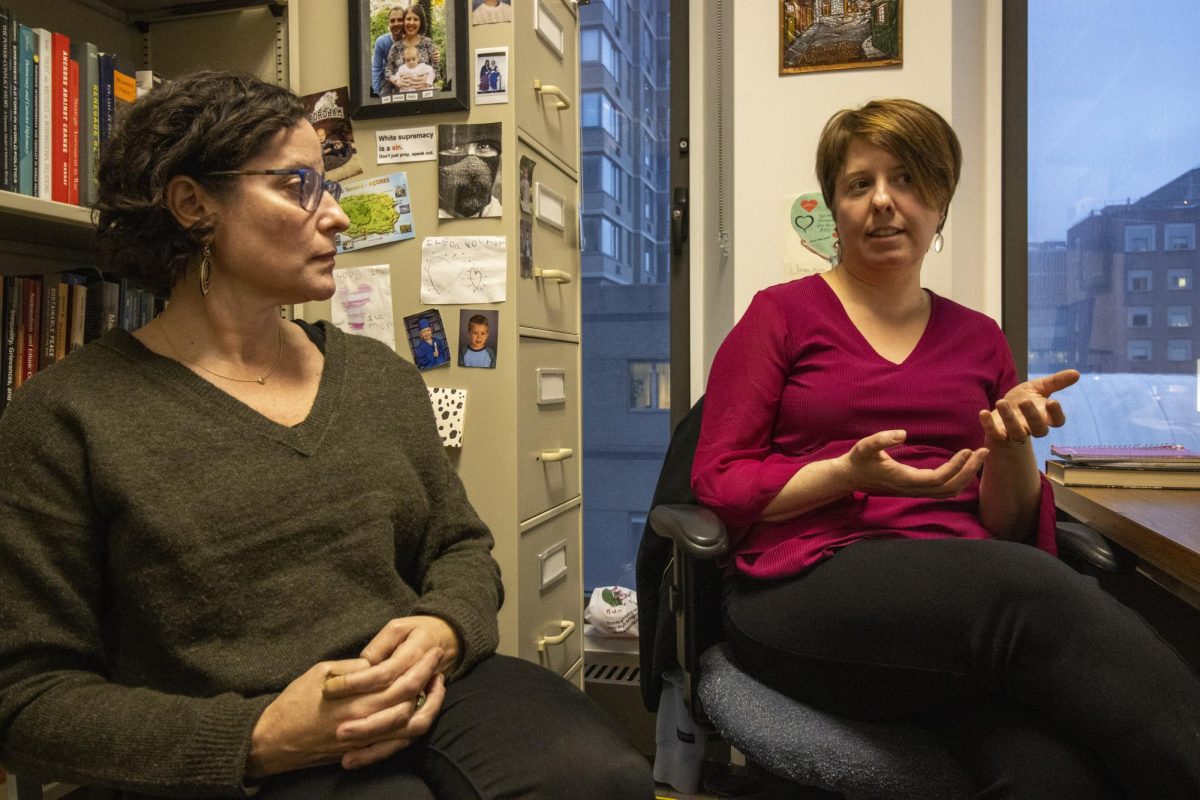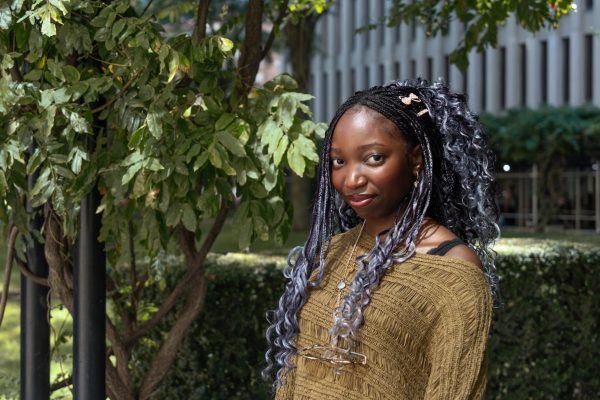As migration policy remains a subject of fierce debate in the United States, the crux of the debate is the human lives impacted by these policies.
Fordham professors offered diverse insights into the dehumanization of immigrants in migration policy and political debate, and highlighted what America will look like after President-elect Donald Trump’s second inauguration.
Sarah Lockhart, assistant professor of political science, has spent years studying how governments manage migration flows and expressed her opinion on what migration policy should look like.
“A good migration policy would be one that provides opportunities for people to migrate and do so safely and that meets both the needs of sending stays and receiving stays that abides by international law and the refugee convention,” Lockhart said.
Lockhart said she is alarmed by Trump’s proposed migration policies.
“How do I think Trump’s proposed policies comply with that? They don’t at all,” Lockhart said. “He wants to reduce pathways for migration. He wants to close the border. He wants to disregard refugee law and just the basic human rights of people.”
Fordham professors offered diverse insights into the dehumanization of immigrants in migration policy and political debate, and highlighted what America will look like after President-elect Donald Trump’s second inauguration.
Lockhart said that Trump’s proposed immigration policy will tear apart families. She noted that past presidential administrations like the Joe Biden and Barack Obama administrations were not pro-immigrant either.
“The Biden administration’s policy on migration was very restrictive, and also violated international law,” Lockhart said. “One common characteristic is that neither of them were able to pass any immigration legislation.”
The Customs and Border Protection (CBP) One app was implemented by the Biden Administration. Carey Kasten, associate professor of Spanish, said the One app makes it possible for migrants to apply for an appointment with CBP but also creates needlessly complex procedures and heightens accessibility barriers to immigration.
“Unless you can show that you’ve met the qualifications of the CBP One application and had that meeting, you are unqualified from applying for asylum and will be deported,” Kasten said.
She noted that past presidential administrations like the Joe Biden and Barack Obama administrations were not pro-immigrant either.
In the presidential debate in September, Vice President Kamala Harris said that Trump lobbied to prevent a bipartisan border bill from passing to prolong debates around immigration and benefit his campaign. Lockhart said this decision was indirectly beneficial because the legislation was overly harsh.
“The proposed legislation that Biden had that Republicans torpedoed was way more draconian than what Republicans were proposing back in the 90s,” Lockhart said.
Lockhart’s research highlighted a troubling trend in U.S. immigration policy — an overemphasis on control and restriction rather than creating pathways for legal migration.
“I think we often focus on this like an immediate crisis and we think there are too many people coming,” Lockhart said. “We overlook the fact that we have labor demands. Immigrants are often the people that are going to bring energy and vitality to our culture and to our economy.”
Humanitarian aid workers, migrants and immigrants alike face an uncertain future.
Kasten focused on migration’s cultural and humanitarian aspects. Her work with the Fordham Initiative on Migrants, Migration and Human Dignity — a program that sends students and faculty to the Arizona-Mexican border — gave her firsthand experience with these individuals’ challenges.
Kasten’s work is a reminder that migration is about more than borders. Humanitarian aid workers, migrants and immigrants alike face an uncertain future.
Kasten said she has been in touch with the Jesuit Refugee Service, a Catholic organization that assists and advocates for refugees and asylum-seekers across 57 countries.
“They’re trying to get a new grant from the Office of Refugee Resettlement, and it looks like maybe that money might disappear,” Kasten said. “Nobody knows what’s going to happen to government money, and so people are grabbing for things right now, and writing grants really quickly.”
Natasha Tiniacos, an adjunct Spanish professor, who came to the U.S. as an asylum seeker from Venezuela in 2016, gave a personal anecdote to Kasten’s point. Tiniacos said immigrants like herself have been feeling vulnerable since Trump’s reelection.
“It’s so many layers of vulnerability,” Tiniacos said. “I’m scared for the people from my country, members of my family that are still waiting for an asylum interview.”
Some immigrants are attempting to rush their naturalization out of fear for the future, according to Tiniacos.
“I have friends getting married just because they are scared of what will happen,” Tiniacos said.
“I’m scared for the people from my country, members of my family that are still waiting for an asylum interview.” Natasha Tiniacos, Adjunct Spanish Professor
Tiniacos said she feels privileged because of the swift process for her to be granted asylum and her life in New York.
“It was super fast in 2019. I think, overall, the paperwork took less than six months. I was interviewed in December and they granted me asylum in January. I don’t know a story like mine that is so fast,” Tiniacos said.
However, she still faces difficulties, and she is trying to become a naturalized citizen.
“I don’t have a passport. I have a green passport that is called a refugee document,” Tiniacos said. “I lost a plane because they didn’t know what it was … You don’t feel validated as a citizen.”
Despite her hardship and Tiniacos’ desire to become a citizen of the U.S. for herself and her family members, she is proud of her background.
“I just wish I could speed up my process of citizenship, but that doesn’t mean I’m going to stop being from Venezuela,” Tiniacos said.
The broader policy implications discussed by Lockhart, Kasten and Tiniacos present immigration as both a political issue and a human one.
Sam Bracy contributed additional reporting to this story.



